Ten faculty members have successfully completed the Penn College Institute for Faculty Leadership, receiving certificates during a brief ceremony Friday afternoon in the Thompson Professional Development Center.
The series, intended to assist those who may be interested in future leadership roles, involved 14 once-a-week sessions from January through April. The comprehensive instruction and interaction provided faculty with an opportunity – away from their day-to-day responsibilities – to reflect on themselves, the diverse challenges they face, and to share practices and techniques for addressing leadership challenges while networking to build understanding and grow professionally.
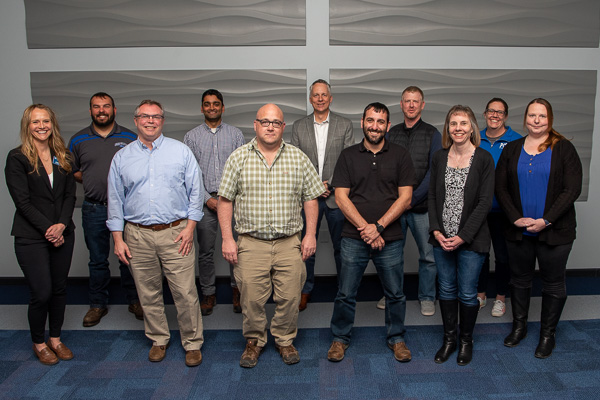 Members of the 2022 class are:
Members of the 2022 class are:
“The talent density on our campus is extraordinary, and creative solutions and innovative breakthroughs emerge when our thought leaders work together toward the implementation of common goals," said Michael J. Reed, vice president for academic affairs/provost and one of the session presenters. "The passion, candor and diversification of experiences within the Spring 2022 faculty leadership series made for a truly special cohort. Spring 2022 presented myriad complexities, and I am grateful for the grit and perseverance of our faculty leaders, making the most of this unique opportunity."
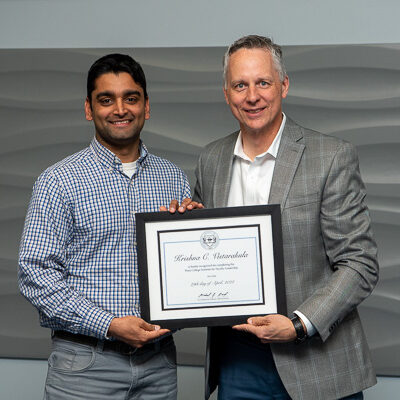
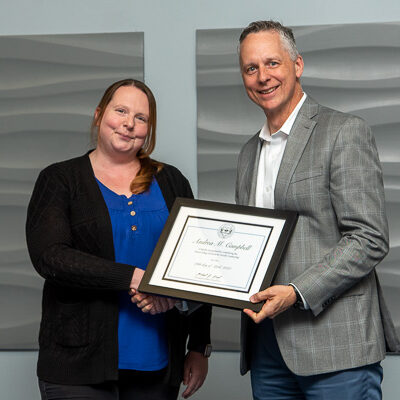
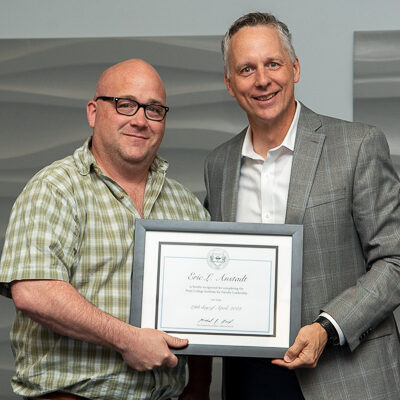
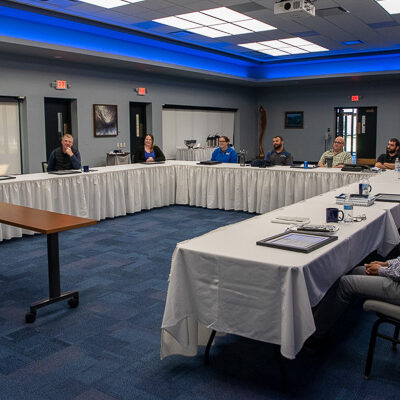 "The collective efforts and dedication demonstrated toward meeting students’ and industry needs – our mission – are inspiring," added Reed, who will assume the college presidency on July 1. "I look forward to seeing the ongoing impact of this cohort’s leadership engagement throughout our campus.”
"The collective efforts and dedication demonstrated toward meeting students’ and industry needs – our mission – are inspiring," added Reed, who will assume the college presidency on July 1. "I look forward to seeing the ongoing impact of this cohort’s leadership engagement throughout our campus.”
The series covered a far-reaching variety of topics: the changing role of the leader, developing faculty leadership competencies, adhering to service and regulatory obligations, fostering effective communications, building collaborative interpersonal relationships, leading through conflicts in the workplace, building a culture of engagement and empowerment, developing peer mentoring and leadership coaching relationships, building a culture of teamwork, cooperation and partnerships, understanding financial and operational metrics, grants and fundraising, examining curriculum and academic affairs, supporting organizational change initiatives, creating a continuous improvement environment, and understanding the enrollment management process.
The series, intended to assist those who may be interested in future leadership roles, involved 14 once-a-week sessions from January through April. The comprehensive instruction and interaction provided faculty with an opportunity – away from their day-to-day responsibilities – to reflect on themselves, the diverse challenges they face, and to share practices and techniques for addressing leadership challenges while networking to build understanding and grow professionally.
 Members of the 2022 class are:
Members of the 2022 class are:- Eric L. Anstadt, instructor, electrical technology/occupations
- Andrea M. Campbell, instructor, English composition/technical communication
- Tushanna M. Habalar, assistant professor, nursing programs
- John D. Motto, instructor, diesel equipment technology
- Eric W. Nagy, instructor, English composition/technical communication
- Tammy M. Rich, associate professor, business administration/management/event management
- David S. Richards, professor, physics
- William F. Stepp IV, assistant professor, aviation maintenance
- Krishna C. Vistarakula, instructor, manufacturing engineering technology
- Nicole S. Warner, librarian, archives and special collections
“The talent density on our campus is extraordinary, and creative solutions and innovative breakthroughs emerge when our thought leaders work together toward the implementation of common goals," said Michael J. Reed, vice president for academic affairs/provost and one of the session presenters. "The passion, candor and diversification of experiences within the Spring 2022 faculty leadership series made for a truly special cohort. Spring 2022 presented myriad complexities, and I am grateful for the grit and perseverance of our faculty leaders, making the most of this unique opportunity."



 "The collective efforts and dedication demonstrated toward meeting students’ and industry needs – our mission – are inspiring," added Reed, who will assume the college presidency on July 1. "I look forward to seeing the ongoing impact of this cohort’s leadership engagement throughout our campus.”
"The collective efforts and dedication demonstrated toward meeting students’ and industry needs – our mission – are inspiring," added Reed, who will assume the college presidency on July 1. "I look forward to seeing the ongoing impact of this cohort’s leadership engagement throughout our campus.”The series covered a far-reaching variety of topics: the changing role of the leader, developing faculty leadership competencies, adhering to service and regulatory obligations, fostering effective communications, building collaborative interpersonal relationships, leading through conflicts in the workplace, building a culture of engagement and empowerment, developing peer mentoring and leadership coaching relationships, building a culture of teamwork, cooperation and partnerships, understanding financial and operational metrics, grants and fundraising, examining curriculum and academic affairs, supporting organizational change initiatives, creating a continuous improvement environment, and understanding the enrollment management process.